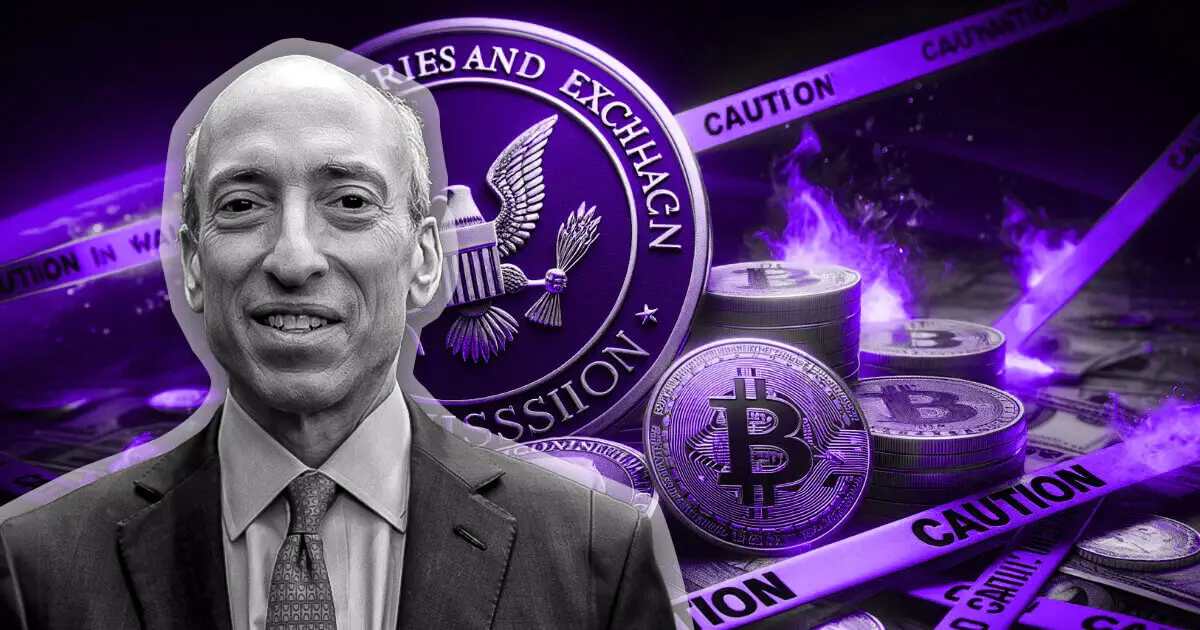In a moment of clarity amid the often turbulent waters of cryptocurrency regulation, SEC Chair Gary Gensler affirmed that Bitcoin is not a security, reinforcing its classification as a commodity under U.S. law. His remarks, made in an interview on CNBC’s Squawk Box, highlight a pivotal stance in the ongoing discourse surrounding the digital asset landscape. Gensler’s assertion is not only critical due to the regulatory scrutiny that various coins face but also underscores the SEC’s evolving relationship with Bitcoin, especially in light of the recent approvals for multiple spot Bitcoin exchange-traded funds (ETFs). This allows Bitcoin to be traded more broadly across major U.S. exchanges, including Nasdaq.
Yet, while Bitcoin enjoys a relatively clear status, Gensler has voiced concerns about the broader cryptocurrency sector’s compliance with existing regulations. Many market participants, in his view, seem to cavalierly disregard the rules designed to foster a stable trading environment. He stated, “There are rules in place, but many have chosen to ignore them.” This apparent defiance not only breeds regulatory chaos but also erodes the foundational trust essential for investor confidence—a point Gensler insists is critical for the crypto industry’s longevity.
The Clouded Future of Ethereum
In stark contrast to Bitcoin’s well-defined classification, Ethereum finds itself navigating a murkier regulatory landscape. The SEC has yet to explicitly designate Ethereum as either a security or a non-security, leaving projects developed on its blockchain in limbo. This ambiguity poses significant challenges for Ethereum-based projects and participants, who are left uncertain about the regulatory expectations they must meet. Although the SEC has approved Ethereum-based ETFs, the agency is simultaneously probing elements of the Ethereum ecosystem, including significant players like Consensys and Uniswap. This contradictory approach spawns further confusion, leading to frustration among stakeholders.
Gensler’s regulatory philosophy regarding Ethereum has also come under fire from various quarters, particularly from members of Congress. Lawmakers have expressed dissatisfaction, arguing that the SEC’s lack of clarity—exemplified by ambiguous language like “crypto asset security”—is detrimental to innovation in the sector. Additional criticism arises from SEC Commissioners Hester Peirce and Mark Uyeda, who contend that the agency has failed to offer the clarity necessary for healthy market development, despite having the regulatory instruments at its disposal.
The Road Ahead: Striking a Balance Between Regulation and Innovation
Despite the growing criticism, Gensler remains steadfast in his belief that a robust regulatory framework is crucial for protecting investors and restoring trust within the cryptocurrency ecosystem. He commented, “This field will not long persist if you can’t build that investor trust in the markets.” Drawing parallels to the evolution of other industries, Gensler likened regulations to “traffic lights and stop signs,” underscoring their importance in guiding development while ensuring safety and order.
The contrasting regulatory statuses of Bitcoin and Ethereum highlight a pivotal moment for the wider cryptocurrency market, as the SEC navigates the complexities of governing an industry that is rapidly evolving. As the regulatory landscape continues to shift, both industry participants and regulators must find common ground to ensure the sustainable growth and integrity of digital assets. The future of cryptocurrency depends significantly on how effectively these regulatory frameworks can adapt to the dynamic nature of the market while fostering innovation.

